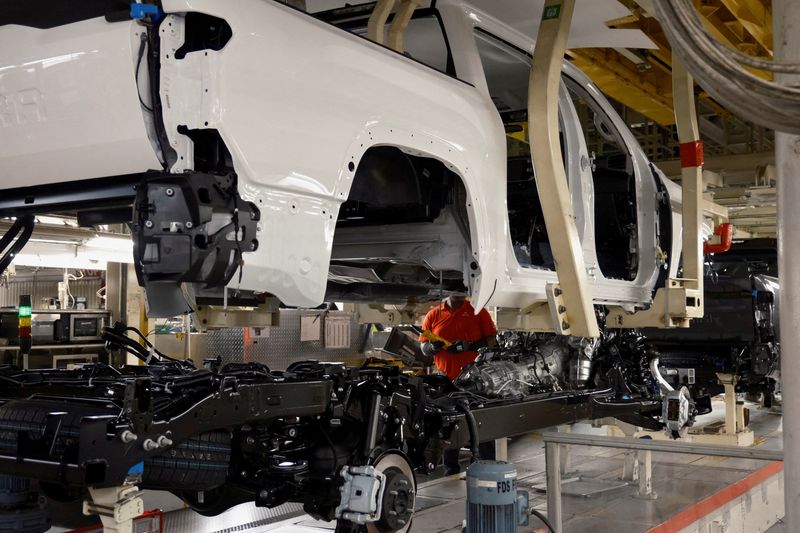By Timothy Aeppel
(Reuters) - Even a robot invasion can't beat a slowing economy.
Companies in North America sharply cut orders for the high-tech machines in the second quarter, according to data compiled by the Association for Advancing Automation, an industry group.
The slowdown in orders began at the end of last year, as rising interest rates and sagging economic growth curbed appetites for new robots, the group, also known as A3, said.
"We wouldn't even consider buying a robot right now," said Nancy Kleitsch, chief financial officer of ICON Injection Molding, a maker of plastic components in Phoenix.
Like many producers, ICON's business shot up during the COVID-19 pandemic, including demand for its plastic tubes used in pandemic testing. But demand for the tubes and other parts of the company's business have now slumped to levels not seen in at least seven years, Kleitsch said.
INFLATION, GROWTH WORRIES
Many other companies appear to share ICON's hesitation on robots. Factories and other industrial users, including e-commerce warehouses and medical testing companies, ordered 7,697 robots in the second quarter, a 37% decline from a year ago. That followed a 21% drop in the first quarter and 22% decline in the fourth quarter of last year.
Robot sales boomed through the pandemic, as producers scrambled to use the machines to churn out badly needed goods. Indeed, even with the slowdown that hit late last year, 2022 marked a record year for orders, according to A3.
But robots are just one type of equipment companies need, and other gauges of spending have held up somewhat better in the U.S. economy. Orders for non-defense capital goods excluding aircraft - closely watched by economists to track trends in business spending - rose 0.1% last month, according to the Commerce Department, suggesting that investments in a wide array of equipment could continue to grow after rebounding in the second quarter.
"It's not that we've soured on automating," Jeff Burnstein, president of A3, said in an interview with Reuters. "But when people are worried about inflation and the economy, it puts a damper on everything - they hold off."
Some industries appear to have over-invested in robots during the recent boom. E-commerce companies, for instance, rushed to build highly automated warehouses in anticipation of continued torrid growth in demand for goods. It hasn't. Another problem, said Burnstein, were companies that ordered too many robots as they feared supply-chain delays.
"They were worried they wouldn't get what they needed, so they overbought," he said. Burnstein added that A3 expects the softness in robot orders to continue until the fourth quarter or early next year.
WIDENING USES
One factor that helped drive robot sales over the past few years was a tight labor market. The unemployment rate in July - at 3.5% - was near levels last seen more than 50 years ago. But worker shortages are easing. Another gauge measuring U.S. job openings dropped to the lowest level in nearly 2-1/2 years in July as the labor market slowed, the Labor Department said on Tuesday.
Meanwhile, robots continue to worm their way into an ever-wider variety of jobs. In the past, they were concentrated in auto factories and their suppliers, which still make up a large share of all robot orders. But the A3 data shows that in recent years robots have spread to everything from construction sites - where they are now used to do tasks like laying down lines on floors to guide crews on where to install walls - to hospitals and food-processing plants.
Aaron Anderson, director of innovation at Swinerton, a large construction company based in Concord, California, said his company has started using a robot that drills holes in concrete ceilings, opening the way for plumbing other mechanical systems to be installed by workers.

But Anderson said it's difficult to justify the cost of buying one of the machines. Since construction projects vary in size and complexity, he said, there are spells when the robot isn't needed at all.
Swinerton's answer: It leases the machine instead, which costs far less.